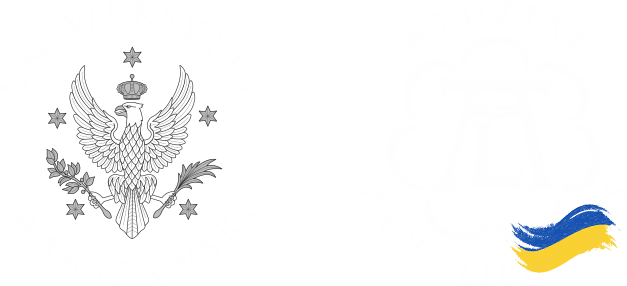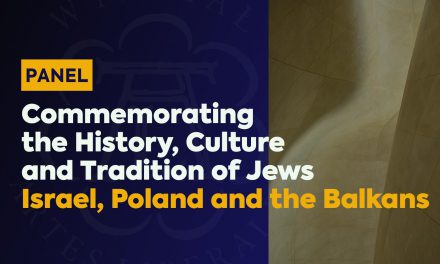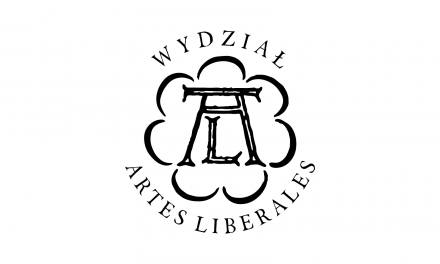I. Vision
By 2020, we intend to make our Faculty of “Artes Liberales” of the University of Warsaw:
- a Faculty where research activities, didactics, development of scholars, as well as continuous excellence of academic teachers will testify to the value and usefulness of the idea and tradition of university, as a free and autonomous community, ready to face the challenges of the modern world.
- a centre of interdisciplinary studies in the humanities, functioning as the initiator and coordinator of inter-faculty, inter-university, international and inter-community educational programs connected to trans- and inter-disciplinary research.
- a place where originates a creative and critical attitude to reality in the spirit of recognition of identity, freedom, responsibility, dialogue, cooperation, self-improvement, respect and understanding of the role of tradition in exploring and changing the contemporary world.
- perceived as an environment where scholarly research in strict combination with didactics, development of scholars and continuous excellence of academic teachers achieves credible innovation, trans- and inter-disciplinarity, producing prototyped scholarly and didactic solutions useful for the academic community at the University of Warsaw and other institutions of higher learning in Poland and abroad.
- a centre of cultural and social influence, nationally and internationally.
II. Mission
Constituted on October 1, 2012 by a decision of His Magnificence the Rector, the Faculty of “Artes Liberales” is a component of the University of Warsaw. It was created after the transformation of the Institute for Interdisciplinary Studies “Artes Liberales” (IBI AL) active since January 23, 2008 – based on a decision of the Senate of the University of Warsaw – it continues also the tradition of the former Centre for Studies on the Classical Tradition in Poland and East-Central Europe (OBTA) founded in 1991. The community of the Faculty originated from initiatives and research, didactic and organizational experiences gained by people who at that time created inter-faculty individual studies in the humanities.
The Faculty of “Artes Liberales” is an integral part of the University of Warsaw and carries out the main goals of its mission. The whole community of the Faculty participates in this endeavour: academic teachers, doctoral students, students, administration, and services as well as permanent or ad hoc collaborators from other institutions.
- Tradition and Challenges
The Faculty of “Artes Liberales” of the University of Warsaw brings together scholars representing different disciplines within the humanities and social sciences, who are all committed to the idea and tradition of University as a free and autonomous community rooted in tradition and open to contemporary challenges, responsible and aware of its role in creating an authentic society of knowledge.
Meeting, dialogue and cooperation between representatives of various scholarly disciplines create a community that takes up innovative, experimental, inter-area, inter- and trans-disciplinary research, restoring memory of the affinity between the humanities, social sciences, and biological sciences and that is open to issues beyond interests and even beyond research capacities of the traditional disciplines. For these reasons, the Faculty – continuing OBTA and IBI AL traditions – actively participates in the implementation of the idea of individual inter-area studies and in the creation of an intellectual community supporting activities of Collegium MISH.
- Teachers and Students
Studies of the first and second level, as well as doctoral studies in the areas of the humanities and social sciences, offered by the Faculty, strictly combine research and teaching – through taking proper advantage of the high scholarly competences of academic teachers responsible for specific subjects, as well as through applying the principle of including students and doctoral students in research and scholarly endeavours. The Faculty ensures close contacts between students and academic teachers, emphasizing the importance of consultation and individual scholarly support, as well as reinforcing and developing recognition of identity, autonomy, and responsibility of students in the process of education in which perfection seeking and self-aware learning plays a significant role. An essential educational goal at the Faculty of “Artes Liberales” is the development of a creative and critical attitude towards the status quo reality, strengthening of self-reliance and, at the same time, of capacity for dialogue and co-operation, for an accurate grasp of modern challenges, effective use of recent information and communication technologies underpinned with respect and understanding of the role tradition in learning about and transforming the contemporary world.
The Faculty of “Artes Liberales” fulfills these aims also through initiating and coordinating inter-faculty, inter-university (Akademia „Artes Liberales”), and international educational programs (Międzynarodowa Szkoła Humanistyczna Europy Wschodniej [International School for the Humanities in Eastern Europe]), of an innovative and experimental character, closely connected to trans- and interdisciplinary studies. These programs promote academic interdisciplinarity understood as an instrument in the process of perceiving and understanding the complexity of today’s world and as the road to development of creative and culture-oriented attitudes.
- Identity and Co-operation
The Faculty seeks to create prototyped scholarly and didactic solutions, useful for the academic community of the University of Warsaw and other universities in Poland and abroad, implementing international co-operation with leading scholarly centres and foundations in the European Union and in the United States, including in the area of development of higher education and promotion of the modern humanities and social sciences. To achieve this goal, it creates innovative structures organizing academic activity – workshops, laboratories, commissions, and permanent units that open the way for connecting tradition with future challenges – such as Kolegium Artes Liberales, Ośrodek Badań nad Tradycją Antyczną [Centre for Studies on Ancient Tradition], and Laboratorium Interdyscyplinarnych Badań „Artes Liberales” [Laboratory for Interdisciplinary Studies “Artes Liberales”].
The Faculty insists specifically on educational development in the spirit of liberal education, through making available to other centres in Poland, and also in Russia and in Ukraine, its original, proprietary forms of scholarly and didactic team work. This co-operation covers also improvement of didactic capacities among academic teachers of the Faculty and allows to enrich academic traditions of the University of Warsaw with inspirations originating from academic experience of other countries.
The Faculty co-operates with other Faculties of the University of Warsaw being guided by the belief that interdisciplinarity can be built only with the participation of flourishing individual scholarly and didactic disciplines; it provides the University community an integrative experience within well understood humanities and natural sciences.
- Experience and Perspectives
The Faculty applies human resources policies facilitating the creation of a scholarly and didactically strong interdisciplinary community, open to young, talented scholars and academic teachers but also taking advantage of established, experienced scholars with significant achievements, using the potential originating from the dialogue and co-operation between these two groups. Judging as essential the value of internationalizing of studies and research teams, the Faculty initiates new unique doctoral programs (International PhD Program) and intends to create international research teams within projects implemented by scholars holding a PhD who begin their academic career (postdoc). The Faculty seeks to broaden as much as possible the access to its activities to people desiring to realize their post-doctoral grants in an environment different from their alma mater, in that manner increasing mobility of highly qualified human resources in Polish universities.
III. Strategic Goals (until 2016)
- Maintaining the highest scholarly category in the ranking of units evaluated by the Committee of Assessment of Scholarly Units at the Ministry of Science and Higher Education.
- An increase in the number of national and international research grants realized at the Faculty of “Artes Liberales.”
- A widening of the scope of other projects implemented at the Faculty of “Artes Liberales” (e. g. didactics, education and development of scholars).
- Retaining of rights to accord the degree of habilitated doctor in the humanities in the field of cultural studies, – PhD in the humanities in the field of literary studies, – the degree of habilitated doctor in the humanities in the field of literary studies.
- Creation of research teams within projects implemented by PhD holders who begin their scholarly career (postdoc).
- Development of 3d level studies (doctoral) – and increase of the number of doctoral students to one hundred;– maintaining of the percentage of foreign doctoral students in the total number of doctoral students at the Faculty; – a widening of the thematic offer for the doctoral studies; – a further development of interdisciplinary and trans-disciplinary doctoral studies with an international reach through the creation of at least one such team.
- Development of 2nd level studies: – opening of 2nd level studies in Modern Greek Philology, – inauguration of Christian Mediterranean Civilization (2nd level studies), – preparation for the opening of Active Culture (2nd level studies) in co-operation with other Faculties of the University of Warsaw and with other universities, – an increase of the number of students at the 2nd level of Cultural Studies–Mediterranean Civilization, – a reform of the 2nd level programs in Cultural Studies–Mediterranean Civilization, – an increase of the number of students at the 2nd level of Artes Liberales (realized in collaboration with other Faculties of the University of Warsaw).
- Increasing the quality of 1st level studies:
– a reform of the 1st level studies programs in Artes Liberales (relized in collaboration with other Faculties of the University of Warsaw,
– a reform of the 1st level studies programs in Modern Greek Philology,
– a reform of the 1st level studies programs in Cultural Studies–Mediterranean Civilization.
- Designing and implementation at the Kolegium „Artes Liberales”: – of a program developing abilities of academic teachers in the area of tutoring, – of a program developing abilities of academic teachers in the area of academic advising,– of a program developing abilities of academic teachers in interdisciplinary and inter-area didactics.
- Launching activities aiming at development of the network of co-operation with the leading universities in Poland in the area of innovative didactic and research solutions.
- Maintaining the international co-operation at the present very high level (involving scholars, universities, institutions from the European Union, Mexico, Russia, United States, Ukraine)
- Development of co-operation with scholars, universities, institutions from countries outside of the European Union.
- Maintaining of a balanced budget (income and expenses) of the Faculty.
IV. Educational Design
The Faculty of “Artes Liberales” adopted as a guiding principle a strict connection between scholarly and didactic activities and uses the potential of community created through meeting, dialogue, and co-operation of representatives of various disciplines within the humanities and social sciences. The Faculty continues and develops scholarly traditions initiated by the Centre for Studies on the Ancient Tradition in Poland and East Central Europe (OBTA UW) and by the Institute for Interdisciplinary Studies “Artes Liberales” (IBI AL UW), focussing on a broadly defined Mediterranean culture, its transformations and influence since Antiquity until present times, as well as promoting innovative, experimental, inter-area, inter- and trans-disciplinary studies that bring back the awareness of affinity between the humanities, social and natural sciences and are open to issues remaining outside of a narrowly demarcated scope of interests, or even of scholarly capabilities of traditional disciplines.
Scholarly activities thus defined are inseparable from didactic initiatives of the Faculty where stationary studies are offered, perfected, and will be developed:
- Modern Greek Philology, 1st level (the opening of the 2nd level is planned),
- Cultural Studies – Mediterranean Civilization, 1st and 2nd level
- artes liberales, 1st and 2nd level,
- doctoral studies (Community Trans-disciplinary Doctoral Studies conducted jointly with the Faculty of History, Doctoral Studies at the Faculty of “Artes Liberales,” International PhD Project The Traditions of Mediterranean Humanism and the Challenges of Our Times. The Frontiers of Humanity).
Simultaneously, the Faculty of “Artes Liberales” will be using experience in organization and in conducting inter-faculty individual studies in the humanities at the University of Warsaw when participating in implementation of inter-area individual studies in the humanities and social sciences at the University of Warsaw. It will also undertake in cooperation with other units of the University of Warsaw projects aiming at designing and launching an educational program Active Culture (2nd level studies).
In the 1st, 2nd, and 3d level studies offered by the Faculty, the close link between scholarly and didactic activities manifests itself through proper usage of high scholarly competencies of the academic teachers conducting specific subjects and through the principle of integration of students and doctoral students into research and other scholarly endeavours. The Faculty ensures close contacts between students and academic teachers, emphasizing the importance of consultation and individual scholarly assistance, and by supporting and developing recognition of identity and responsibility of students in the process of education, where conscious learning and self-perfection play a special role.
An essential goal of education at the Faculty of “Artes Liberales” is the shaping of a creative and critical attitude to reality, recognition of identity and autonomy as well as capacity for dialogue and co-operation, accurate reading of modern challenges, effective use of recent information technology and communication and also respect and understanding of the role of tradition in exploring and changing the contemporary world. Increasing of the quality of education and didactic perfection at the Faculty play an important role in the open dialogue and joint activities with the Student Council and Doctoral Students Council.
The Faculty of “Artes Liberales” seeks prototyped didactic solutions useful for the academic community at the University of Warsaw and at other universities in the country and abroad, initiating international co-operation with the leading scholarly centres and foundations in the European Union, United States, and other countries, including in the area of development of the higher education and promotion of innovative educational methods of trans- and interdisciplinary education in Poland, Russia, and Ukraine. The Faculty initiates and coordinates inter-faculty, inter-university (Akademia „Artes Liberales”), and international educational programs (Międzynarodowa Szkoła Humanistyczna Europy Wschodniej), innovative and experimental, closely connected to trans- and interdisciplinary research. Through these programs it promotes interdisciplinarity of studies treated as an instrument used to better grasp and understand the complexity of today’s world and as a way to develop creative and culture forming attitudes.
At the same time, the Faculty of “Artes Liberales” recognizes the exchange of experience, dialogue, and cooperation in the inter-faculty, inter-university, and international areas, as important factors in educating students and doctoral students as well as in continuous improvement of didactic capacities of its academic teachers. Attributing a special importance to individualized, learner centered forms of modern trans-, interdisciplinary, and inter-area didactics, the Faculty will undertake the planning and implementation of programs designed to improve qualifications of academic teachers (with participation of students and doctoral students) in the area of tutoring, academic advising, as well as in in interdisciplinary and inter-area didactics.



![Prof. Leo Rafolt: „Rituals of the institutionalization” [recording]](https://al.uw.edu.pl/wp-content/uploads/2023/04/FB_IMG_1680638778007-440x264.jpg)

